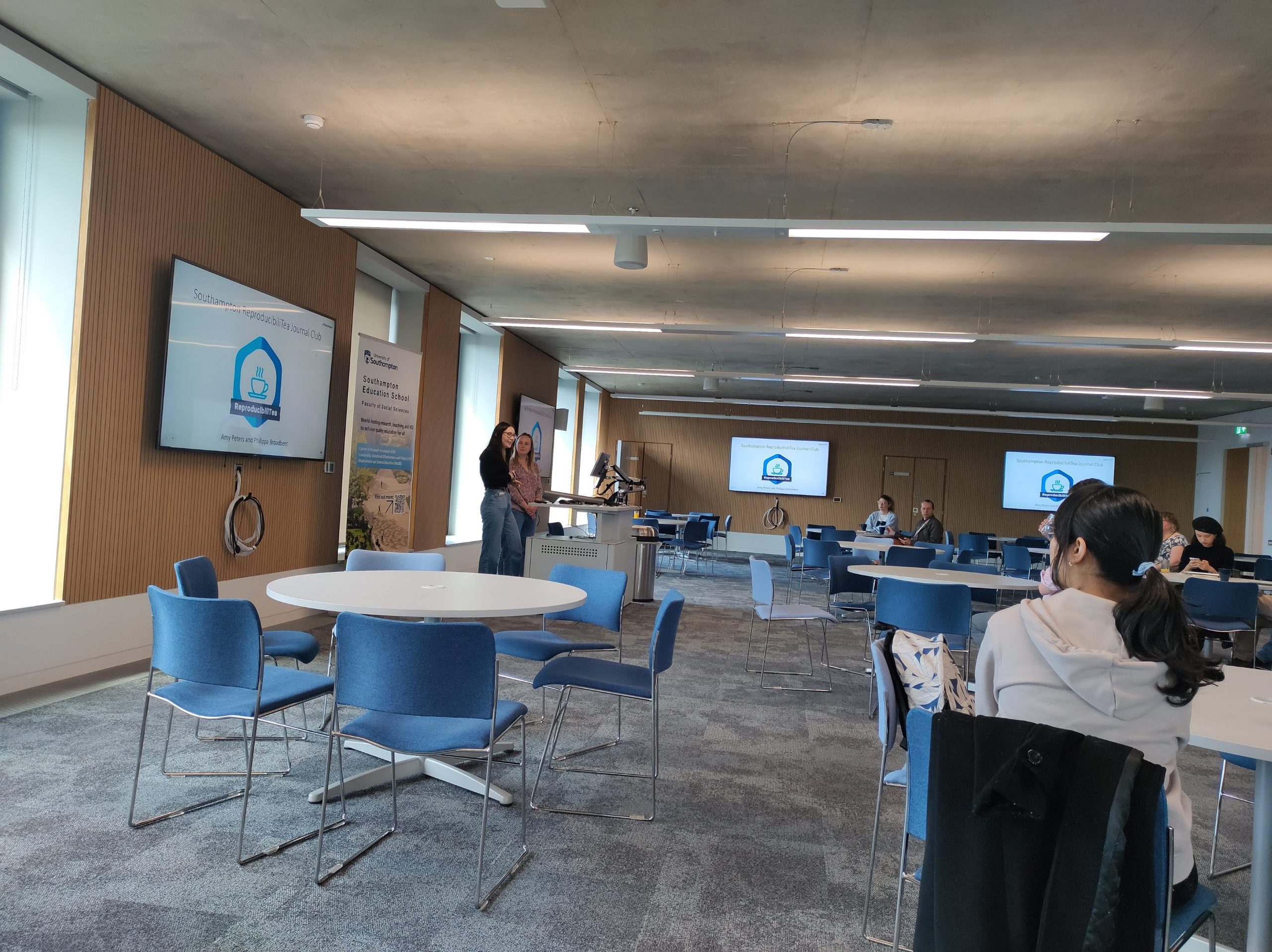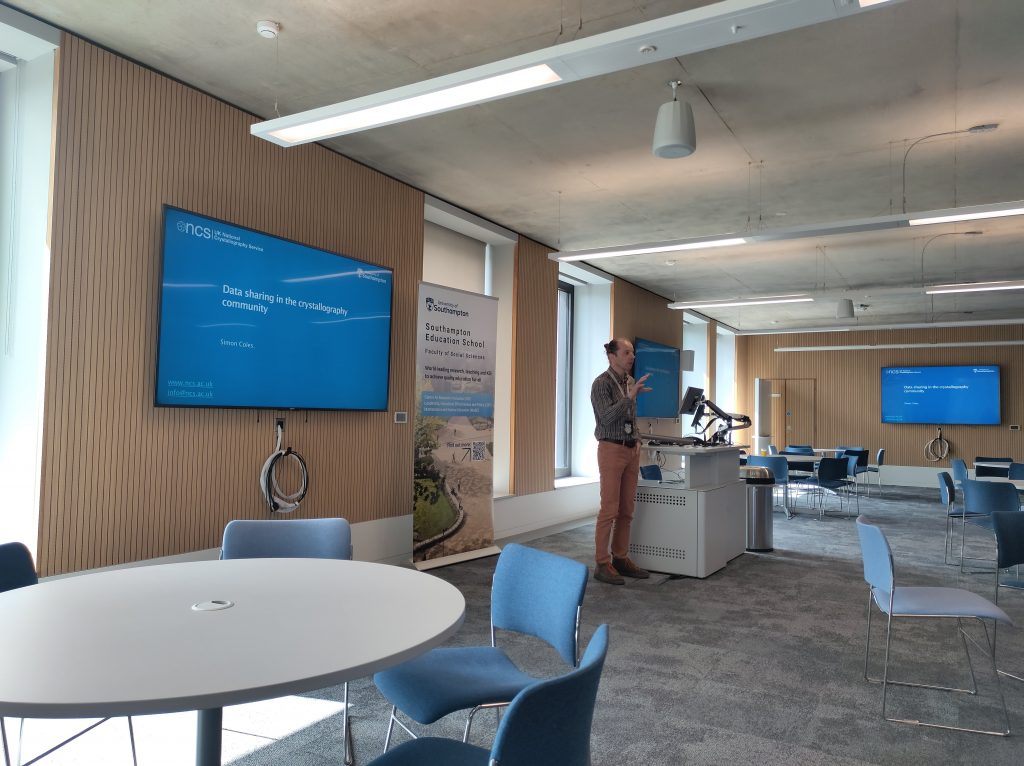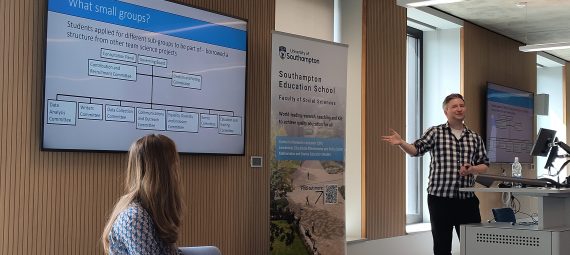In the world of academia, open research should form the bedrock of the research landscape. With its emphasis on transparency, collaboration, and accessibility, open research has the potential to be a driving force for positive cultural change in research communities. In April, the University of Southampton UKRN organised an event dedicated to exploring and celebrating the principles and practices of open research at the UoS and beyond. This blog post is an opportunity for me to reflect on the highlights and key takeaways from this event, and to look forward to what next year has in stock.

Our event brought together a diverse group of researchers, students, and stakeholders from various disciplines, all united by a shared passion for open research and improving research culture. The day was opened by the event organiser, Professor Christian Bokhove, who introduced the keynote presentation which was delivered by Dr. Sholto David, a significant contributor to the science sleuthing community. He left his role last year and dedicated some of his time to uncovering flaws in scientific papers via the PubPeer platform, his X/twitter feed, and a YouTube channel. Sholto’s talk gave an overview of his work raising awareness about scientific misconduct, falsification of data, paper mills, and image manipulation.
The presentations that followed provided an opportunity to showcase the successes in the field of open research that occur at UoS. Kicking off these sessions were the organisers of Southampton ReproducibiliTea, with their interactive take on purgatory in the “Nine Circles of Scientific Hell”. In a session re-framing Dante’s Inferno for the modern research landscape, the audience had to decide which open research sins were the most deserving of torment. They were followed by Amanda Blatch-Jones from the School of Medicine, with a session on the importance of pre-prints in the clinical setting and further afield. Amanda’s session acknowledged the perceived barriers that exist to the use of pre-prints in clinical publishing, whilst promoting best practice in the field.

One of the most rewarding aspects of our event was the opportunity to amplify the voices of emerging scholars. In the first session after lunch, Hayward Godwin described a novel taught unit in the Undergraduate Psychology degree, whereby undergraduate students collaborate to design and run their own study. One of these students delivered the results of this study, reminding us of the importance of nurturing talent and fostering inclusivity within the academic community. Rounding up the day was Simon Coles from the Department of Chemistry with a session that highlights the importance of open data. Crystallography has contributed significantly to our understanding of the natural world and has led to numerous technological advancements. A large part of that success is due to the commitment that the global crystallography community makes to sharing their work. Simon Coles’ session considered the standards that the community has adhered to in the past and how they are looking to the future through transparent data sharing.

The day ended with an open discussion, which sparked lively debate and allowed our participants to think critically about the future of open research and its impact on research culture. Attendees had the opportunity to network, collaborate, and forge new partnerships with like-minded individuals who shared their commitment to advancing open research.
As I close off this blog post, I want to take a second to reflect and thank the people who made the event possible. Firstly, by thanking our speakers who gave their time and their expertise so generously to us. Without your commitment to open research and to furthering research culture, events such as this wouldn’t be possible. Secondly, I want to thank the people who did so much of the work to organise this event. Professor Christian Bokhove and Elisabetta Calamelli organised a fantastic event and I’m sure that I’m not the only person who is grateful for their efforts.
We’re all excited to move forward and make this another successful year for the Southampton UKRN group.

